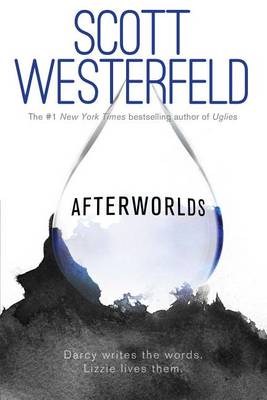Reviewed by nannah on
Book content warnings:
ableist language
cissexim
biphobia
Okay, so the book alternates both "stories"/PoVs, making it very frustrating to get into either of them. Plus, Darcy's story could be told without Lizzie's - a contemporary novel about a young YA author who gets published and falls in love, etc., but Lizzie's story could Not exist without Darcy's. Not because of the Obvious fact that Darcy wrote it, but because (no offense to the fictional character Darcy) it sucks. Which then makes Darcy's story harder to be interesting, because her life . . . is all about her "bestselling" book.
Darcy Patel is an 18yo Indian-American (whose family life is actually one of the more interesting aspects of this whole package here) who wrote an entire book in NaNoWriMo. It's a rough draft, but she decides to query it off to a literary agency anyway. Just one agency, just one letter. And wow! The agent signs her in 17 DAYS - and Darcy gets a 100k advance! (what??) And then this big-shot agent lets Darcy stay in her NY apartment while she's on vacation until Darcy finds an apartment of her own.
If this seems suspiciously strange and more than a bit insulting to aspiring writers everywhere - then yeah, that's how I felt, too.
Throughout the entire book, it feels like Darcy just doesn't have to work hard to overcome anything. Isn't that the basis for a plot? Is this just a novel about some girl's sliding through the YA industry - an industry so many people have to work hard to get into - and stay in? I don't know . . . what's happening.
Then there's Imogen Gray, Darcy's love interest. THANK YOU, Imogen, for making this book interesting. Imogen herself isn't a particularly outstanding character, but she brought some interesting dynamic to the book and created a good balance to Darcy's near-narcissism. And when they KISSED. It made me want to swallow all my criticisms of this book, because I haven't read that many great kisses between women in YA, let alone lit at all.
Speaking of their relationship, though, it brought some problematic things . . . from the characters and (maybe) Scott Westerfeld himself?
Darcy couldn't let it go that she didn't know Imogen Gray's real name, and that it was a pen name used to start fresh after a less-than-perfect past. Chill out. A person's name given to them at birth isn't as important as the name they choose for themselves but apparently Darcy thinks given names are some "real" and "secret" mythical things, I don't know. Maybe it show's Scott Westerfeld's lack of understanding of this age group (like having some 18 year olds saying "squee" and "all the feelings" out loud . . . yikes).
And then we have this awful thing for young bi girls to read:
"So do you only like girls now?" Nisha asked.
"I don't know."
"That answer bores me, Patel. You must look at people now and then. Like, random hotties on the street. Are they ever boys?"
"I don't look at anyone else. I don't think about it that way. Maybe I'm Imogen-sexual."
(p. 458)
Darcy became an irritating character about halfway through and onward. Who snoops through their girlfriends closet and then just calls it innocent snooping? She later looks at Imogen's diary on her phone, too, and becomes even more juvenile. She misses the deadlines for literally everything. Her college, lease, nearly her draft, etc. And then she blames all this on the universe being arrayed against her, I SWEAR. (This is her character growth, too.) Maybe that explains how unlikable her book and her book's characters are.
Darcy's novel is a typical paranormal romance, starting off with a bang (a terrorist attack), which results in the protagonist, Lizzie, becoming a "grim reaper", of sorts. Then she meets another gorgeous psychopomp, falls in love, and makes a bunch of terrible choices. Including straight-up murdering someone. :/ She feels no remorse for it, either. I mean he was a murderer, but still. Nobody's actions make sense, nobody is relatable. And worst of all, it adds nothing to Darcy's story.
So I'm just left feeling confused about everything.
Reading updates
- Started reading
- 1 June, 2016: Finished reading
- 1 June, 2016: Reviewed
